Preventive healthcare refers to medical services that focus on avoiding illness rather than treating it after it occurs. This includes routine check-ups, screenings, vaccinations, and counseling aimed at maintaining well-being. In a city like New York—where people often juggle demanding work schedules, long commutes, and urban stress—preventive care becomes not just important, but essential.
According to the Centers for Disease Control and Prevention (CDC), chronic diseases such as heart disease, cancer, and diabetes are among the most common and costly health issues in the United States. Yet, they are also largely preventable through regular healthcare access and healthy lifestyle choices (“Chronic Diseases in America”).
For busy New Yorkers, staying proactive about their health can mean:
- Avoiding expensive medical bills from emergency room visits
- Catching conditions early when they’re more treatable
- Maintaining energy and productivity throughout the day
- Reducing stress about future health uncertainties
What Chronic Illnesses Are Most Common Among New Yorkers?
New York City has a unique health profile shaped by its diversity, density, and lifestyle factors. The New York City Department of Health and Mental Hygiene reports several chronic illnesses as especially prevalent:
- Hypertension (high blood pressure) – Nearly 1 in 3 adults have it.
- Diabetes – Affects over 12% of the adult population.
- Heart Disease – Leading cause of death in NYC.
- Asthma – Particularly common in children and residents of lower-income neighborhoods.
- Depression and Anxiety – Mental health struggles are rising, often exacerbated by city stressors (NYC Health).
These conditions are often influenced by lifestyle habits, environmental factors, and delayed healthcare. Preventive care plays a key role in managing risk factors before they become unmanageable.
How Can Screenings and Annual Checkups Make a Difference?
Many chronic illnesses progress silently in their early stages. That’s why regular screenings are vital. Annual checkups can detect early signs of disease before symptoms appear, giving patients a better chance at long-term health.
Examples of effective preventive screenings include:
- Blood pressure checks – Catching hypertension early can prevent strokes and heart attacks.
- Blood sugar and A1C tests – Early detection of prediabetes or diabetes can lead to lifestyle interventions.
- Cholesterol panels – Help manage heart disease risk.
- Cancer screenings – Such as mammograms, colonoscopies, and pap smears, which can detect cancer early.
- Mental health evaluations – Especially useful for spotting depression or anxiety before they escalate.
According to the U.S. Preventive Services Task Force, following recommended screening guidelines can reduce mortality rates and healthcare costs significantly (“USPSTF Recommendations”).
Why Do Busy New Yorkers Often Delay Preventive Care?
Despite the benefits, many New Yorkers delay or avoid preventive care. Common reasons include:
- Lack of time – Long work hours and commuting make it hard to schedule appointments.
- Financial concerns – Even with insurance, co-pays and deductibles can be a deterrent.
- Healthcare system complexity – Many find navigating appointments and insurance confusing.
- Assumption of good health – People often wait until symptoms show up to see a doctor.
This “wait and see” approach is risky. Chronic conditions caught late are often harder and more expensive to treat. That’s why healthcare providers like NY Choice Medical emphasize flexible scheduling, multilingual staff, and efficient service for working individuals.
How Can Preventive Healthcare Be Integrated Into a Hectic NYC Lifestyle?
In a city that never sleeps, carving out time for health may seem impossible. However, with the right strategies and support, even the busiest person can prioritize preventive care.
Here are practical tips:
- Use telehealth services – Many clinics now offer virtual visits for routine check-ins or follow-ups.
- Book early morning or late evening appointments – Look for providers with extended hours.
- Bundle errands – Choose clinics near work or home to combine with other daily routines.
- Automate reminders – Use phone apps or calendar alerts to stay on top of appointments.
- Choose multi-service clinics – Facilities like NY Choice Medical offer primary care, urgent care, and labs under one roof, reducing the need for multiple trips.
When healthcare is easy to access and fits within daily routines, people are more likely to stay on top of it.
What Lifestyle Changes Can Support Preventive Healthcare Goals?
Preventive care isn’t just about going to the doctor—it’s also about daily habits. New Yorkers can enhance their wellness through small, manageable lifestyle changes:
- Walk more – NYC is a walking city, which is great for heart and joint health.
- Eat smart – Opt for salads, fruits, and lean proteins even when ordering takeout.
- Stay hydrated – Carrying a water bottle helps reduce reliance on sugary drinks.
- Prioritize sleep – Aim for 7–8 hours per night to support immune and mental health.
- Manage stress – Deep breathing, mindfulness, and breaks can reduce cortisol levels.
The New York State Department of Health also promotes community wellness initiatives, like greenmarkets and fitness programs in local parks, which make healthy choices more accessible (“Prevention Agenda 2019-2024”).
How Do Vaccines Fit Into Preventive Health for Adults?
Vaccinations are a core component of preventive care—not just for children, but adults too. In urban environments like New York City, the risk of infectious disease transmission is higher due to population density and public transportation.
Important vaccines for adults include:
- Influenza (flu) vaccine – Annually to prevent seasonal outbreaks.
- COVID-19 vaccine and boosters – To maintain protection, especially in public settings.
- Tdap (tetanus, diphtheria, pertussis) – Every 10 years.
- Shingles and pneumococcal vaccines – Recommended for older adults.
The CDC recommends discussing your vaccine schedule during your annual checkup. Clinics like NY Choice Medical offer walk-in vaccine services for added convenience.
Can Mental Health Be Part of Preventive Care?
Absolutely. Mental health is increasingly recognized as part of overall well-being. Stress, anxiety, and depression not only affect daily life but also contribute to physical health issues like high blood pressure, heart disease, and substance use disorders.
Mental health preventive strategies include:
- Therapy or counseling – Even occasional check-ins can be beneficial.
- Mindfulness practices – Such as meditation or journaling.
- Social connections – Spending time with friends or family reduces feelings of isolation.
- Work-life balance – Setting boundaries around screen time and emails is key.
The National Institute of Mental Health stresses that early mental health care is just as important as physical health care (“Mental Health Information”).
How Does Preventive Care Reduce Long-Term Healthcare Costs?
When illnesses are detected early, treatment tends to be simpler, less invasive, and less expensive. Delaying care often leads to emergency room visits, hospital stays, or chronic medication use—all of which drive up personal and system-wide healthcare costs.
A study published in Health Affairs found that preventive services can lead to a 5% to 10% reduction in overall healthcare costs for adults by reducing emergency interventions and hospitalizations (Maciosek et al.).
Key financial benefits of preventive care include:
- Lower insurance premiums over time
- Reduced absenteeism at work
- Fewer co-pays for urgent treatment
- Better management of chronic conditions, reducing complications
Where Can New Yorkers Go to Get Reliable Preventive Healthcare?
Finding a trusted provider is critical. Fortunately, New York City offers a wide range of healthcare options:
- Primary care clinics – These serve as the first stop for most preventive needs.
- Community health centers – Federally funded and often income-based.
- Employer-sponsored programs – Some workplaces offer on-site health screenings.
- Private practices – Offer more personalized and sometimes faster service.
NY Choice Medical, for example, is a modern healthcare provider in NYC that caters to busy professionals. They focus on making care accessible through convenient hours, bilingual staff, and same-day appointments.
Conclusion: How Can Preventive Healthcare Empower Busy New Yorkers to Thrive?
Preventive healthcare isn’t a luxury—it’s a necessity, especially in a fast-paced city like New York. From screenings and vaccines to stress management and smart lifestyle choices, prevention lays the foundation for long-term health.
By embracing proactive care, New Yorkers can:
- Stay ahead of chronic illness
- Save money
- Improve quality of life
- Reduce the burden on an already-stressed healthcare system
Ultimately, making time for your health today can keep you strong and resilient for the future.
Works Cited
Centers for Disease Control and Prevention. “Chronic Diseases in America.” CDC.gov, 6 Feb. 2023, https://www.cdc.gov/chronicdisease/resources/infographic/chronic-diseases.htm.
Maciosek, Michael V., et al. “Greater Use of Preventive Services in U.S. Health Care Could Save Lives at Little or No Cost.” Health Affairs, vol. 29, no. 9, 2010, pp. 1656–1660. https://doi.org/10.1377/hlthaff.2008.0701.
National Institute of Mental Health. “Mental Health Information.” NIMH.nih.gov, https://www.nimh.nih.gov/health/topics.
New York City Department of Health and Mental Hygiene. “Community Health Profiles.” NYC Health, https://www.nyc.gov/site/doh/data/data-publications/profiles.page.
New York State Department of Health. “Prevention Agenda 2019-2024: New York State’s Health Improvement Plan.” Health.ny.gov, https://www.health.ny.gov/prevention/prevention_agenda/2019-2024/.
U.S. Preventive Services Task Force. “USPSTF A and B Recommendations.” USPreventiveServicesTaskForce.org, https://www.uspreventiveservicestaskforce.org/uspstf/recommendation-topics/uspstf-a-and-b-recommendations.
Ready to Take Charge of Your Health in NYC?
Preventive care doesn’t have to be complicated or time-consuming—especially when you have the right team by your side. At NY Choice Medical, our providers understand the pace of New York life and are here to help you stay ahead of chronic illness with personalized, proactive healthcare.
Whether you’re looking for:
- Family medicine services for consistent, compassionate care
- Comprehensive weight management to support your fitness and wellness goals
- Health screening services to catch issues early before they become bigger problems
- Or stress management solutions to help you feel mentally and emotionally balanced
We’re here to make preventive care easier and more accessible than ever.
Frequently Asked Questions (FAQ)
2. How often should I get check-ups or screenings if I feel healthy?
Even if you feel fine, annual checkups are recommended. Depending on age, gender, and personal risk factors, your doctor may also recommend:
- Blood pressure checks: every 1–2 years
- Cholesterol tests: every 4–6 years (or more often if at risk)
- Diabetes screening: every 3 years starting at age 35
- Cancer screenings (e.g., colonoscopy, mammogram): as advised for your age group
Your provider will personalize your screening schedule based on your health profile.
3. I have a busy schedule—how can I find time for preventive care in New York City?
Great question! Many clinics now offer solutions for busy professionals, including:
- Extended early morning or evening hours
- Walk-in or same-day appointments
- Telehealth visits for check-ins and follow-ups
- Multi-service clinics like NY Choice Medical where you can get labs, vaccinations, and primary care all in one place
Booking care around your routine—like during a lunch break or after work—can make it more doable.
4. Does insurance cover preventive care services in NYC?
Yes. Under the Affordable Care Act, most health insurance plans (including Medicaid and employer-sponsored plans) are required to cover a wide range of preventive services at no cost to you, including:
- Annual wellness visits
- Vaccinations
- Screenings for high blood pressure, cholesterol, diabetes, and cancer
- Depression screenings
Always check with your provider for coverage specifics, but in many cases, you won’t have to pay out-of-pocket.
5. Can mental health care be part of preventive healthcare?
Absolutely. Mental health is just as important as physical health. Preventive mental health care includes:
- Regular mental health check-ins with a therapist or counselor
- Mindfulness and stress-reduction practices
- Support groups or wellness coaching
- Early screening for anxiety, depression, or burnout
Addressing mental health early can help prevent serious conditions down the road and improve your overall well-being.

